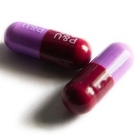Articles tagged with: ASH 2011 Meeting
News»

The results of a recent retrospective analysis show that the sequence of treatment with Velcade and Revlimid may not have a significant effect on outcomes in multiple myeloma patients.
Only patients with kidney disease had significantly longer survival times if they received Velcade first.
The researchers from the Moffitt Cancer Center in Tampa, Florida, who conducted the analysis pointed out that further prospective trials are needed to confirm their findings.
The results were presented during a poster session at the 2011 American Society of Hematology (ASH) annual meeting in December.
Velcade (bortezomib) …
News»

The final results of a Phase 1/2 clinical trial indicate that perifosine in combination with Velcade and dexamethasone may be effective in multiple myeloma patients who previously relapsed from or were treatment-resistant to Velcade.
The trial results made a favorable impression on Dr. Philip McCarthy of the Roswell Park Cancer Institute in Buffalo, New York, who was not involved in the study.
“This combination had activity with an overall response rate (complete response, near complete response, partial response, and minor response) of 41 percent which is quite reasonable and exciting in this …
News»

The results of a recent Phase 2 clinical trial suggest that siltuximab in combination with dexamethasone may be effective for some multiple myeloma patients resistant to prior dexamethasone-containing treatments. However, siltuximab in combination with high-dose dexamethasone may be associated with a high rate of serious side effects.
Dr. Peter Voorhees from the Lineberger Comprehensive Cancer Center in Chapel Hill, North Carolina, presented these results at the 2011 American Society of Hematology (ASH) conference in San Diego last month.
Although Dr. Voorhees and his colleagues concluded that the combination of siltuximab and dexamethasone …
News»

Combined data from two recent Phase 1 clinical trials suggest that twice-weekly marizomib, with or without low-dose dexamethasone, may be effective for patients with relapsed or refractory multiple myeloma.
Dr. David Vesole from the John Theurer Cancer Center in Hackensack, New Jersey, who was not involved in the study, described marizomib as having “modest activity in relapsed/refractory myeloma.”
Dr. Paul Richardson from the Dana-Farber Cancer Institute in Boston presented the results at the American Society of Hematology (ASH) annual meeting in San Diego last month.
Marizomib (NPI-0052), which is being developed by …
News»

The results of a small Phase 1 clinical trial demonstrate that BT-062, a new drug specifically targeting multiple myeloma cells, shows activity and is tolerable in heavily pretreated multiple myeloma patients.
Dr. Sundar Jagannath of the Mount Sinai Medical Center in New York City presented the results at the 2011 American Society of Hematology (ASH) conference in San Diego last month.
Based on the favorable safety and activity of BT-062, a Phase 1/2 clinical trial has been initiated and is currently recruiting patients. It will use a more frequent dosing …
News»

Interim results from a Phase 2 study show that panobinostat may be clinically beneficial for certain multiple myeloma patients with advanced disease.
In the study, patients who had relapsed and were no longer responsive to Velcade-based treatments received panobinostat in combination with Velcade and dexamethasone.
Although the results generally are being viewed as favorable, “It is hard to interpret them because you don’t really know how the patients would have done with just Velcade and dexamethasone alone,” explained Dr. Leif Bergsagel, a myeloma specialist from the Mayo Clinic in Arizona, in a …
News»

The most recent results of a Spanish Phase 3 clinical trial indicate that Revlimid in combination with dexamethasone delays disease progression in smoldering multiple myeloma patients who have a high risk of developing symptomatic disease.
Specifically, the results showed that high-risk smoldering multiple myeloma patients who received Revlimid plus dexamethasone had a longer time to disease progression and better overall survival than patients who did not receive treatment.
However, the Spanish researchers acknowledged that these results should be confirmed by long-term follow-up data, especially regarding the difference in overall survival.
Dr. Ola …

